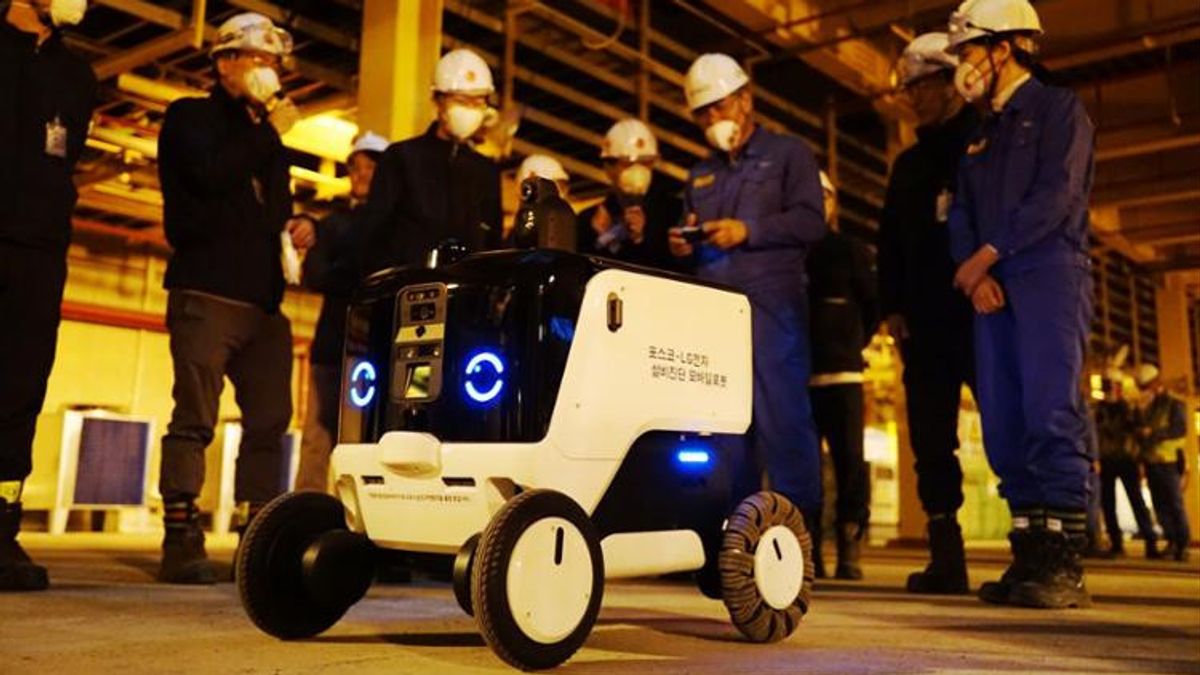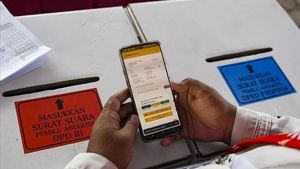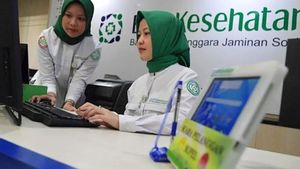
JAKARTA - AI-based self-driving robots (artificial intelligence) belonging to LG Electronics can be widely used to analyze facilities in dangerous work locations in the future, the company said on Wednesday, after completing a two-day inspection trial of management of unmanned facilities using robots at the Gwangyang steel factory owned by POSCO.
LG said the robot completed its facility management mission in the steel factory's electric space in Gwangyang, South Jeolla Province, on Mondays and Tuesdays.
This autonomous robot independently creates a path to patrol the electric space, which is larger than two football fields, avoiding waterways and other hurdles.
The robot also checks the operating status of various equipment located in all electrical spaces, such as power lines, transformers to reactors and sends the results to the company's control room.
This pilot project was carried out as part of a business agreement between LG Electronics and POSCO Holdings.
In May, the two companies signed a business agreement for the development of technology in the robotics, AI and 5G networks as well as conducted a first-stage demonstration in July to control the semi-autonomous robotic mover.
"We equipped the robot with cameras and detector sensors and light range (LiDAR). The robot uses information obtained from sensors to identify the surrounding environment more accurately," LG said, launching the Korea Times November 15.
"This robot has a high level of recognition even in a dimly lit environment, such as a basement or a place where a safety fence is mounted around the equipment. If it detects abnormal temperatures in various equipment in the electrical space using temperature information obtained from a thermal imaging camera, it will take pictures and send alerts to the control room," he continued.
The company added that this improves the performance of hot and cooling-resistant robots, because environments such as electric spaces in hot steel factories and have a lot of high-voltage equipment.
In addition, robots can operate stably even in certain environments, by allowing workers to monitor robot driving information from the control room and remotely control it if needed.
관련 항목:
LG and POSCO said they would accelerate the creation of more efficient and secure manufacturing sites by sharing the capabilities of their respective smart factories through collaboration.
"We will further improve our technological capabilities by verifying smart factory technologies such as robots, AI, and communications in various manufacturing locations," explained Kim Byoung-hoon, chief technology officer of LG Electronics.
"We will strengthen our manufacturing competitiveness with smart autonomous factory technology in the future," he said.
The English, Chinese, Japanese, Arabic, and French versions are automatically generated by the AI. So there may still be inaccuracies in translating, please always see Indonesian as our main language. (system supported by DigitalSiber.id)

















